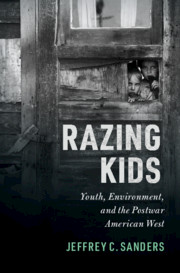3 - “Saving Trees, Land, and Boys”
Juveniles, Nature, and the Carceral State
Published online by Cambridge University Press: 10 December 2020
Summary
This chapter explores the relationship between growing concerns about youth delinquency in American cities at midcentury and the development of War on Poverty programs that helped to lay the groundwork for the subsequent War on Crime and the evolution of the carceral state. Emerging postwar patterns of uneven development and environmental inequality affected poor urban and African American youth in particular. The growing popular ecology movement would only underline these truths as toxins and environmental risks to youth came to the center of public concern in new forms and at different scales. This chapter explains how the War on Poverty’s assumptions further entwined youth and environment at this pivotal moment in the construction of gendered and racialized conceptions of juvenile delinquency in the postwar West. Older conceptions of environment and youth – often held by the planners of youth-related government programs – would face new challenges as youth began to resist the ecological conditions they faced in cities and youth camps alike, helping to challenge the meanings of environment in public discourse about race and poverty.
Keywords
- Type
- Chapter
- Information
- Razing KidsYouth, Environment, and the Postwar American West, pp. 115 - 161Publisher: Cambridge University PressPrint publication year: 2020



